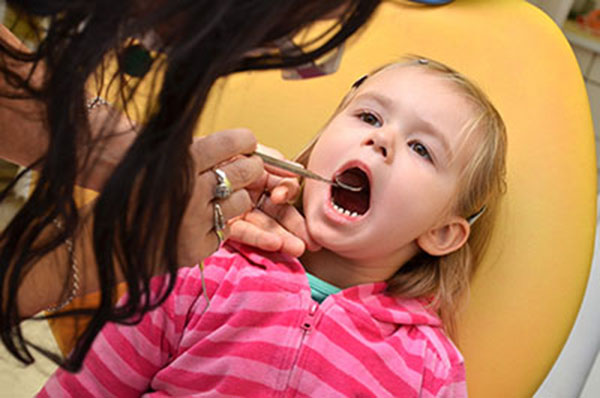Permanent Teeth Milestones: A Quick Guide From a Pediatric Dentist

As your child’s teeth come in, a pediatric dentist can help confirm that the teeth are coming in properly. There are several milestones your child should be meeting. This includes losing the first baby teeth around six or seven. Read on to learn more.
First molars
Between the ages of six and seven years, children will get the first molars. These teeth are known as “extra” permanent teeth. This simply means that the first molars do not replace any baby teeth. Sometimes, parents mistake these teeth for more primary teeth. However, it is vital to care for these permanent teeth. These teeth will also affect the shape of the child’s lower face.
Central incisors
When a child is between six and eight years, the central incisors will come in. These teeth are the two teeth in the front and center of the mouth. Both the upper and the lower jaws have these teeth. Individuals use these teeth for biting and tearing. The front teeth are some of the first ones that a child will lose.
Lateral incisors
A child’s lateral incisors will come in around seven and eight years of age. These are the teeth on either side of the central incisors. People will also use these teeth for tearing and biting. In the upper jaw, these teeth will usually come in about a month or two after the same one in the lower jaw.
Canine teeth
Children who are between nine and 13 years old will get the canine teeth. These are the slightly pointed teeth on either side of the lateral incisors. Individuals use these teeth for ripping slightly tough foods, such as meats. Each child will have four canine teeth.
Premolars
At around nine to 13 years old, the premolars will come in. These teeth will replace existing primary teeth. As the child grows, the jaw will grow longer to make way for the premolars. These teeth work to grind and chew food.
Second molars
When a child is about 11 to 13 years old, the second molars will come in. These are the last teeth to come in for several years. These teeth are at the very back of the mouth. Because these teeth are wide and flat, they are good for grinding foods.
Third molars, or wisdom teeth
If children get the wisdom teeth, they will usually come in between the ages of 17 and 21 years. Many times, the teeth are not aligned properly. If this is the case, then the child may need to have the wisdom teeth removed. Wisdom teeth removal can prevent decay from poorly cleaned teeth later. Wisdom teeth are usually not needed for chewing.
Visit a pediatric dentist today
As your child’s teeth come in, it is good to visit a pediatric dentist regularly. Visiting every six months is a good starting point. This dentist can confirm that the child is on track. Sometimes, early orthodontic treatments will be necessary.
Request an appointment here: https://nettsmiles.com or call Nett Pediatric Dentistry & Orthodontics at (623) 759-7658 for an appointment in our Phoenix office.
Check out what others are saying about our services on Yelp: Read our Yelp reviews.
Recent Posts
Pediatric dentistry is a vital part of a child's healthcare team. They are responsible for the oral health of babies, children, and adolescents. A pediatric dentist has the education and experience to care for a child's unique dental needs. In addition, they can provide preventive care, diagnosis, and treatment of various dental problems.Parents need to…
Pediatric dentistry works with parents and children to keep gums and teeth healthy. Brushing daily may be an important part of oral care, but it is not enough. Flossing must be a habit in kids as well. If you want to know more about the importance of daily flossing, here are the details straight from…
When scheduling a child's first dental appointment, you should consider visiting the pediatric dentistry office. Dentists who specialize in pediatric dentistry acquire additional training beyond the universal requirements of dentistry school to meet the unique needs of their young patients. A parent's decision to establish with a particular provider may be influenced by their knowledge…
Your child's teeth will develop and change as they age. Likewise, the kind of dental care they need will change over time. The adult teeth may not develop properly without proper oral care, leading to gum disease and decay problems. Talking to a pediatric dentistry professional and asking the appropriate questions may help better care…


